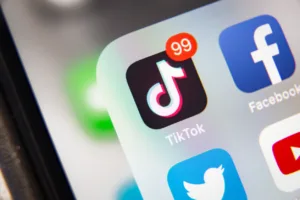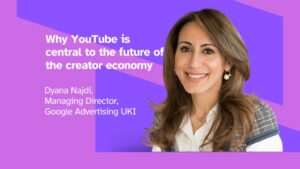By Christopher Douglas, Senior Strategy Manager at Billion Dollar Boy
New Billion Dollar Boy research has revealed that 60% of creators plan to increase their presence on LinkedIn in the next 12 months. The findings follow a year where nearly half had already boosted their activity on the platform.
The growth of content creators on LinkedIn – typically associated with B2C platforms such as YouTube, TikTok and Instagram – reflects a broader shift: creators and brands alike are beginning to recognise the largely untapped potential of B2B influencer marketing.
The case for B2B creator marketing
Influencer marketing in a B2B context isn’t new. Whether it’s CEOs, consultants or academics, consumers are at ease with turning to social platforms for expertise and are seeking out niche industry leaders for their advice and insights.
Brands have successfully capitalised to execute founder-led influencer strategies for some time, with leaders acting as influential advocates who can drive brand preference by positioning companies as approachable, innovative, and aligned with consumer values. These personality-driven brand campaigns go beyond casual branding, actively generating qualified business leads and positioning founders as thought leaders in their industries.
But, when it comes to the use of social-media first content creators in a B2B context, these strategies have largely operated on the sidelines of most marketing strategies.
That’s changing as both creators and brands realise its unique ability to drive strong engagement and generate leads and conversions – with LinkedIn emerging as an increasingly important channel.
For creators, LinkedIn not only offers the chance to reach new audiences and diversify content strategies, it also offers additional revenue streams. 42% of creators we surveyed reported that their B2B content performs as well or better than B2C content – including conversions, with 30% of creators citing strong earnings from B2B campaigns.
For brands, the appeal lies in the ability to humanise their offerings and connect with niche, hard-to-reach audiences. The professional focus of LinkedIn creates a perfect environment for sharing valuable insights, building trust, and fostering authentic relationships with an audience already primed for business-oriented content.
The migration of B2C creators to B2B platforms
The growing migration of B2C creators to B2B platforms like LinkedIn is indicative of a wider trend: the professionalisation of the creator economy.
In today’s creator economy, creators are no longer just influencers; many are skilled entrepreneurs – nine in ten creators (88%) report having already launched a product or service.
In addition to collaborating with brands on LinkedIn, they’re using the platform to build their own businesses, engage investors, and grow their professional networks. This dual-purpose functionality makes LinkedIn a strategic platform for both brand partnerships and for creators to develop their personal brands.
The rise of cross-sector partnerships
As the creator economy evolves and grows, the worlds of B2B and B2C creator marketing are becoming increasingly blurred. Within this context, consumers are turning to creators for a greater variety of content, enabling a more diverse range of brand-creator collaborations.
This shift is seeing more B2B brands dip their toe into creator marketing. For example, Adobe partnered with Elise Swopes, a renowned digital artist and Instagram influencer, to showcase Adobe Photoshop and Adobe Illustrator. Swopes’s visual demonstrations of how Adobe’s tools enhance creativity, appealed not only to creatives but also to marketing professionals and businesses in need of design solutions, bridging the gap between professional tools and relatable storytelling to connect with audiences.
The future of B2B creator marketing
In 2025, we can anticipate many of these trends to continue to progress.
That means, more creators flocking to LinkedIn, drawn by its earning potential and ability to reach professional audiences – especially as the number of creator entrepreneurs continues to grow.
We’ll also see more B2B brands explore unconventional collaborations, working with traditional B2C creators from diverse industries to engage niche audiences.
And this increased investment into B2B creator marketing will ensure companies move beyond ad-hoc influencer campaigns, and develop long-term partnerships that position creators as integral to their marketing efforts.
Conclusion
The rise of B2B creator marketing is reshaping the digital landscape, as more creators recognise its potential for both brand collaborations and personal growth.
For brands, the key to success lies in embracing this shift, forming meaningful partnerships with creators, and leveraging their expertise to drive engagement and business growth. In the rapidly evolving creator economy.












